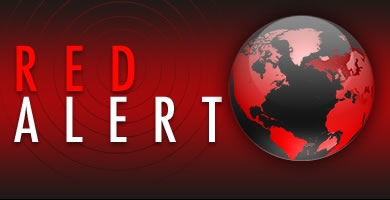Libya Red Alert: Clashes in Tripoli
Politics / Middle East Feb 21, 2011 - 04:19 AM GMTBy: STRATFOR
 Emerging reports early Feb. 21 indicate the unrest in Libya is spreading from eastern Libya to the capital of Tripoli. According to initial reports, heavy gunfire was heard in central Tripoli and in other districts with Al Jazeera reporting 61 people killed in Tripoli on Feb. 21. Other unconfirmed reports say protesters attacked the headquarters of Al-Jamahiriya Two television and Al-Shababia as well as other government buildings in Tripoli overnight.
Emerging reports early Feb. 21 indicate the unrest in Libya is spreading from eastern Libya to the capital of Tripoli. According to initial reports, heavy gunfire was heard in central Tripoli and in other districts with Al Jazeera reporting 61 people killed in Tripoli on Feb. 21. Other unconfirmed reports say protesters attacked the headquarters of Al-Jamahiriya Two television and Al-Shababia as well as other government buildings in Tripoli overnight.
 According to Saudi-owned Al-Arabiya, the government-owned People’s Conference Centre where the General People’s Congress (parliament) meets when it is in session in Tripoli was set on fire. British Petroleum reportedly said it would evacuate its personnel from Libya and suspend its activities due to massive unrest. Spanish Foreign Minister Trinidad Jimenez said Feb. 21 that the EU member states are coordinating possible evacuations of European nationals from Libya. A Turkish Airlines flight was arranged to evacuate Turkish citizens from Benghazi but was denied the opportunity to land by Libyan authorities and returned to Turkey.
According to Saudi-owned Al-Arabiya, the government-owned People’s Conference Centre where the General People’s Congress (parliament) meets when it is in session in Tripoli was set on fire. British Petroleum reportedly said it would evacuate its personnel from Libya and suspend its activities due to massive unrest. Spanish Foreign Minister Trinidad Jimenez said Feb. 21 that the EU member states are coordinating possible evacuations of European nationals from Libya. A Turkish Airlines flight was arranged to evacuate Turkish citizens from Benghazi but was denied the opportunity to land by Libyan authorities and returned to Turkey.
Details are sketchy as to the number of protesters and severity of the clashes in Tripoli. Clashes have been going on between the protesters and security forces in mostly eastern cities of the country and in Benghazi in particular, where opposition to Libyan leader Moammar Gadhafi is concentrated. Signs of protests’ spreading to Tripoli emerged late Feb. 20 and apparently intensified following a speech made by Ghadhafi’s son Seif al-Islam. In that speech, Seif al-Islam was attempting to present himself as the new and untarnished face of the regime, reiterating the political, social and economic reforms that he has long advocated were needed to hold Libya’s tribal society together. Though in his speech Seif al-Islam carefully distanced himself from old-regime tactics, protesters in Tripoli reportedly rejected the young Libyan leader and began chanting slogans against Seif al-Islam’s address.
Critically, Seif al-Islam implied in his speech that he had the the approval of his father and elements within the military, and that the army and national guard would be relied on to crack down on “seditious elements” spreading unrest. However, unconfirmed reports of army defections in Benghazi and Al Bayda in eastern Libya from Feb. 20, and now spreading unrest to Tripoli on Feb. 21, are casting some doubt on the regime’s ability to count on the full loyalty and ability of the army to contain the situation.
By George Friedman
This analysis was just a fraction of what our Members enjoy, Click Here to start your Free Membership Trial Today! "This report is republished with permission of STRATFOR"
© Copyright 2011 Stratfor. All rights reserved
Disclaimer: The above is a matter of opinion provided for general information purposes only. Information and analysis above are derived from sources and utilising methods believed to be reliable, but we cannot accept responsibility for any losses you may incur as a result of this analysis.
STRATFOR Archive |
© 2005-2022 http://www.MarketOracle.co.uk - The Market Oracle is a FREE Daily Financial Markets Analysis & Forecasting online publication.


